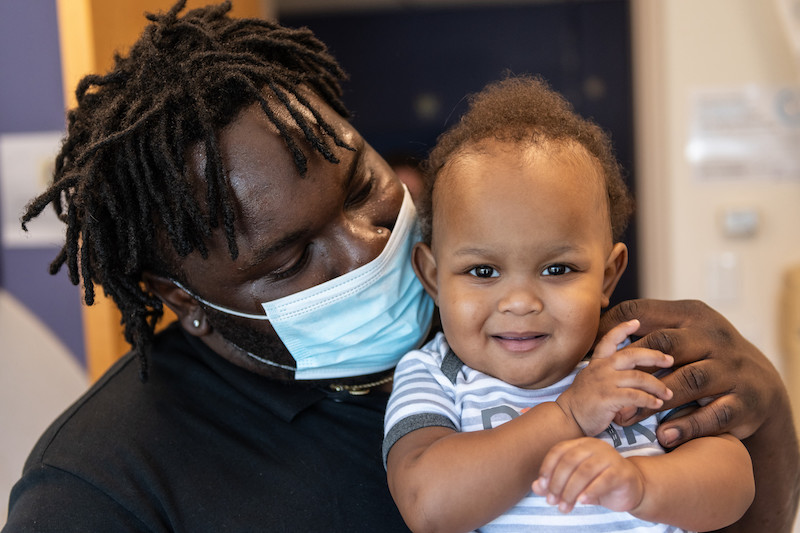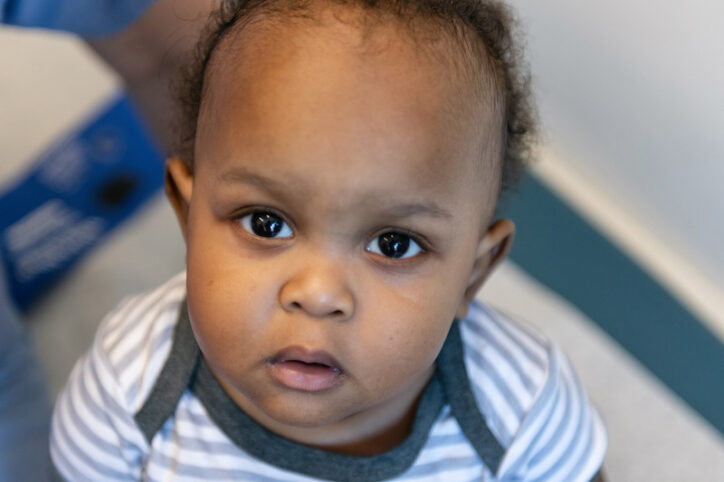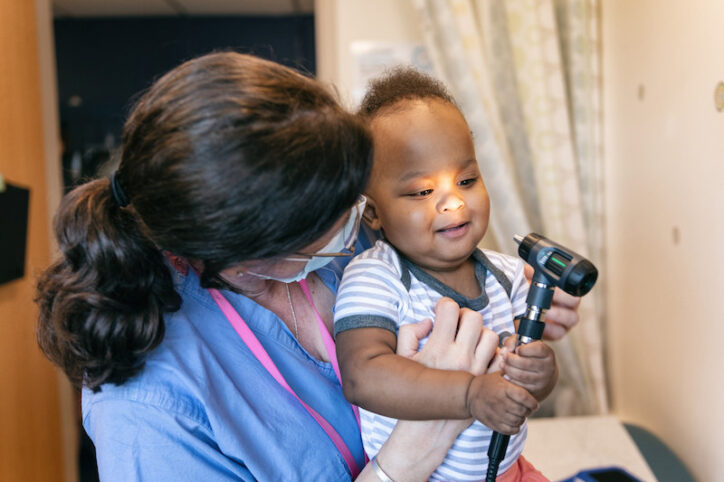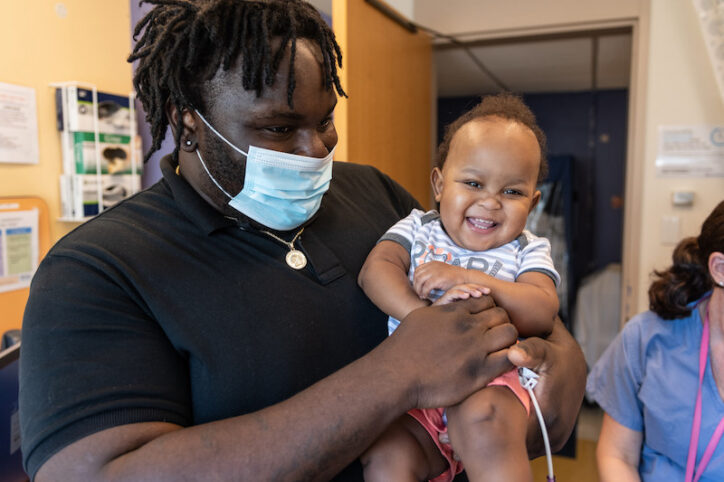Unstoppable: Cairo’s journey for kidney care began even before birth

Like lots of babies, Cairo Carter was born screaming — and his parents were thrilled. “We just wanted him to scream so we knew he could breathe,” explains his mother, Alaila. The family cried tears of joy and relief, but they understood that the moment was just the first step of a long journey. “We knew Cairo would need a lot of help with his kidneys,” she says.
Alaila and Cairo’s father, Eric, had always wanted children and were ecstatic when they learned they were expecting. But their excitement turned to shock when an exam at 24 weeks showed that Alaila had no amniotic fluid. Further testing revealed that Cairo’s bladder and kidneys were enlarged — signs of a rare type of lower urinary tract obstruction called posterior urethral valves, which can lead to kidney damage. Low levels of amniotic fluid can also cause poor lung development, a potentially life-threatening problem.

Planning for the future
The diagnosis brought Alaila, who was being seen at Brigham and Women’s Hospital, to the Maternal Fetal Care Center (MFCC) at Boston Children’s Hospital. The team, including MFCC registered nurse Olivia Oppel, social worker Kassie Merrill Olver, and nephrologist Dr. Deborah Stein, met with Alaila and Eric several times to plan for what would happen once Cairo was born.
That preparation included advanced testing, ongoing support, and a birth plan that allowed Alaila to deliver at Brigham and Women’s before Cairo was transported to Boston Children’s neonatal intensive care unit. It also meant getting a crash course in what Cairo’s future could look like, including the possibility of dialysis and, eventually, a kidney transplant.
“His condition isn’t something that just lasts a few weeks,” Alaila says. “We needed to be ready and learn everything that we could in advance, and the MFCC team helped us do that.”

Finding support
Despite his initial scream, Cairo did require supplemental oxygen after he was born — but he was able to come off of it in less than 10 days. And there was other good news: His kidneys worked well enough that he didn’t require dialysis. Instead, Dr. Stein treated him with medication and dietary modifications. All told, Cairo spent nearly three months in the hospital before he was ready to go home.
It hasn’t always been easy. Cairo currently gets his nutrition through a feeding tube and has experienced multiple urinary tract infections and other complications of his condition. But Alaila and Eric have taken things in stride — even as they’ve welcomed a second child to their family. “It can be super stressful,” Alaila admits. “But we’ve just kept a good head on it — and we have a great support system.”

On the move
Part of that support has come from Cairo himself. Even as his family, clinicians, and his new care team in Boston Children’s Kidney Transplant Program are helping ready him for a new kidney, he’s going with the flow. Now almost 18 months old, Cairo is meeting his developmental milestones and loves showering his little sister with hugs and kisses.
And he isn’t letting anything hold him back. “Despite all that he’s been through, he always has a smile. He’s standing up and running around on his own now,” says Alaila. “If he falls, he just gets up and keeps moving.”
Learn more about the Maternal Fetal Care Center.
Related Posts :
-

From Virginia to Boston for a kidney transplant: Joshy’s story
Joshy Buchheit is a lot like most 4-year-old boys. He loves playing in the mud, riding his scooter, and keeping ...
-

Innovative new shunt delivery system holds promise for treatment of fetal urinary tract obstruction
Urinary tract obstruction that occurs in utero can have serious consequences for the fetus. Such obstructions can block the flow ...
-

From Cape Verde for coordinated CDH care
Most parents have never heard of congenital diaphragmatic hernia (CDH), a rare and potentially life-threatening condition in which a baby ...
-

Making it through the fight: Scarlett's CDH journey
Like her name suggests, Scarlett Virginia Moulton “has a lot of fire,” says her mother, Olivia. “She always has a ...





